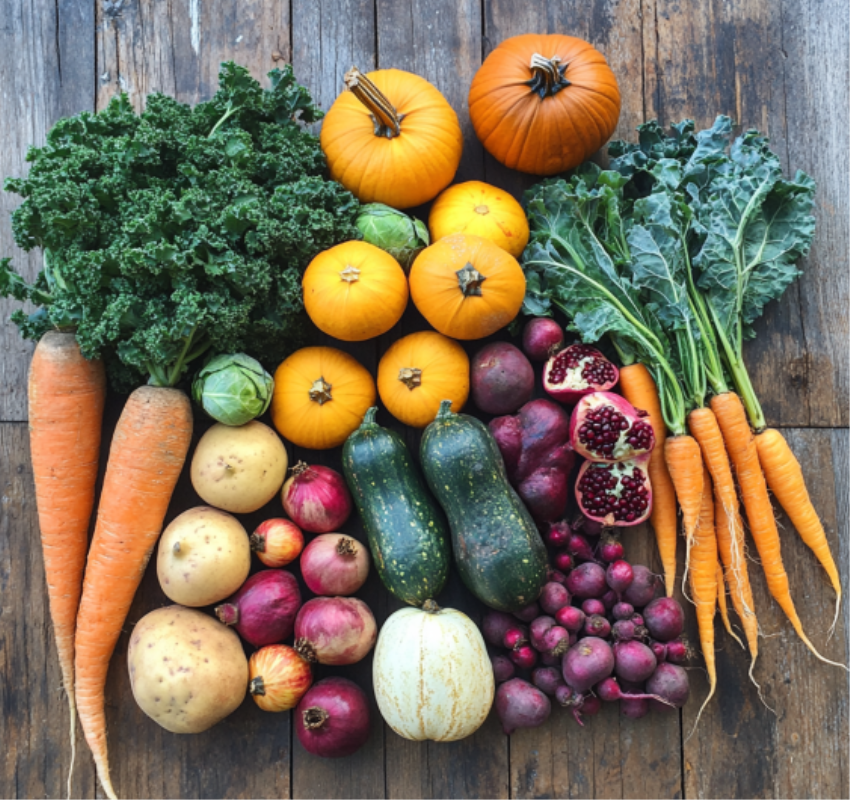Whether you’re looking to shed a few pounds, adopt a healthier lifestyle, or manage a chronic condition, 2025 has ushered in an exciting range of diet options to suit nearly every goal. From tried-and-true plans like the Mediterranean and DASH diets to trendy newcomers such as the Low-FODMAP and Anti-Inflammatory diets, there's a solution for everyone. These diets not only address weight management but also focus on improving health holistically and sustainably.
Below, we explore the key diets trending in 2025, their unique features, and their health benefits to help you find the plan that fits your lifestyle best.
1. The Mediterranean Diet
Many experts agree that the Mediterranean Diet remains unbeaten as the gold standard for overall health. This diet consistently tops popular rankings for its proven benefits, including heart health, brain function, and reduced risk of chronic diseases such as diabetes and cancer.
Key Features
- Focus on fruits, vegetables, whole grains, nuts, and healthy fats like olive oil.
- Moderate consumption of fish, poultry, and dairy.
- Minimal intake of red meats and sweets.
The Mediterranean Diet is known for its flexibility, making it easy to adapt to individual tastes. It’s not just a meal plan but a lifestyle that emphasizes portion control, mindful eating, and staying active.
Why is it Gaining Traction in 2025?
Its evidence-based approach continues to put this diet in the spotlight. New studies link it to better gut health and reduced inflammation, making it more appealing to those with conditions like arthritis or irritable bowel syndrome (IBS).
2. The DASH Diet
The Dietary Approaches to Stop Hypertension (DASH) Diet is another top contender, especially for those looking to manage high blood pressure or cholesterol. This diet focuses on lowering sodium intake while emphasizing nutrient-dense foods.
Key Features
- Abundant vegetables, fruits, and lean proteins like chicken and fish.
- Low-fat dairy products and whole grains as staples.
- Limited intake of added sugars, saturated fat, and sodium.
Key Benefits
Aside from its impact on cardiovascular health, the DASH Diet promotes weight loss and better overall wellness without the need for extreme restrictions.
Why is it Popular Now?
With growing awareness of heart disease risks and the importance of preventive measures, the DASH Diet offers a practical, sustainable solution. Its flexibility also makes it a strong contender for families and older adults.
3. The Flexitarian Diet
For those curious about vegetarianism but not ready to say goodbye to meat completely, the Flexitarian Diet is a great middle ground. It advocates for a plant-based diet while allowing occasional meat or fish.
Key Features
- Mainly plant-based but includes limited animal protein.
- Features legumes, grains, vegetables, and fruits as diet staples.
- Encourages reducing processed foods and saturated fats.
Key Benefits
The Flexitarian Diet has been praised for its ability to lower the risk of heart disease, reduce cholesterol levels, and promote weight loss. Its eco-friendly approach also addresses concerns about sustainability.
Why is it Trending?
Flexitarianism aligns with the growing demand for plant-based diets without eliminating personal choice. It’s a practical shift for anyone looking to incorporate more plants into their diet without losing protein variety.
4. The Anti-Inflammatory Diet
Inflammation is at the core of many chronic illnesses, and the Anti-Inflammatory Diet has gained significant attention for its potential to combat this underlying cause. The goal is to reduce inflammation levels through nutrient-packed, whole foods.
Key Features
- High in fruits, vegetables, nuts, seeds, omega-3 fatty acids, and whole grains.
- Includes spices like turmeric and ginger known for their anti-inflammatory properties.
- Limits inflammatory triggers such as refined carbs, processed foods, and sugary drinks.
Key Benefits
Following this diet can alleviate symptoms of arthritis, lower the risk of diabetes, and improve overall digestion. It’s also linked to better aging and reduced risk of cognitive decline.
Why is it in Demand?
The rise in chronic health conditions and aging-related issues has spurred interest in diets targeting inflammation. The Anti-Inflammatory Diet blends easily with other existing eating habits, making it less restrictive and more appealing.
5. The Low-FODMAP Diet
Designed for individuals with digestive issues like IBS, the Low-FODMAP Diet restricts certain short-chain carbohydrates (FODMAPs) that can trigger symptoms such as bloating, gas, and abdominal pain.
Key Features
- Initial phase eliminates high-FODMAP foods like garlic, onions, apples, and dairy.
- Gradual reintroduction of foods to identify specific triggers.
- Focus on gut-friendly choices like low-lactose dairy, rice, and greens.
Key Benefits
Research shows that this diet significantly reduces IBS symptoms in up to 75% of sufferers, allowing them to regain control of their health.
Why is it Surging in 2025?
Awareness of gut health has grown immensely, and the Low-FODMAP Diet offers a science-backed approach to manage symptoms—providing relief for millions.
6. The MIND Diet
A hybrid of the Mediterranean and DASH Diets, the MIND Diet (Mediterranean-DASH Intervention for Neurodegenerative Delay) zeroes in on brain health, helping to reduce the risk of Alzheimer’s and cognitive decline.
Key Features
- Focus on leafy greens, whole grains, nuts, berries, and fish.
- Inclusion of olive oil and moderate amounts of wine.
- Avoids red meats, butter, pastries, and fried foods.
Key Benefits
This diet strengthens memory and may enhance mental clarity, making it incredibly relevant for anyone concerned about brain health with aging.
Why it’s Gaining Attention Now
As more people take proactive steps toward “aging well,” diets like MIND that prioritize long-term cognitive health are becoming mainstream.
Emerging Diet Trends to Watch in 2025
- Dates as Sugar Substitutes: Health-conscious individuals are replacing added sugars with natural alternatives like dates for sweetness in baking and cooking. Swapping in dates comes with added fiber and micronutrients for guilt-free indulgence.
- Calming Mocktails: With sober living becoming increasingly trendy, calming mocktails infused with adaptogens like magnesium and ashwagandha are a delicious way to destress.
- High-Protein Plant Foods: Food trends are moving toward protein-packed vegetarian staples such as Greek yogurt, legumes, and nuts—catering to a general shift toward plant-forward eating.
How to Choose the Right Diet for You
With so many options, how do you know which diet is right for you? The answer lies in your specific health goals and lifestyle needs. For example:
- Managing Chronic Conditions: DASH or Low-FODMAP.
- Heart Health: Mediterranean Diet or Flexitarian.
- Weight Loss: Anti-Inflammatory or Flexitarian.
- Cognitive Wellness: MIND or Mediterranean Diet.
Remember that diets are not one-size-fits-all. Always consult with a healthcare provider before trying a new plan, particularly if you have preexisting medical conditions.
2025 has brought a mix of familiar and exciting new dietary trends to the forefront, each catering to different goals and lifestyles. Whether you're looking for long-term health improvement, weight loss, or symptom relief, there's a plan tailored to your needs.
Whichever you choose, remember that sustainability is key—look for a diet you can maintain for years to come rather than a quick fix. A healthier approach to eating is just the beginning of a happier, more harmonious lifestyle.
 (Image source: Midjourney)
(Image source: Midjourney) 





